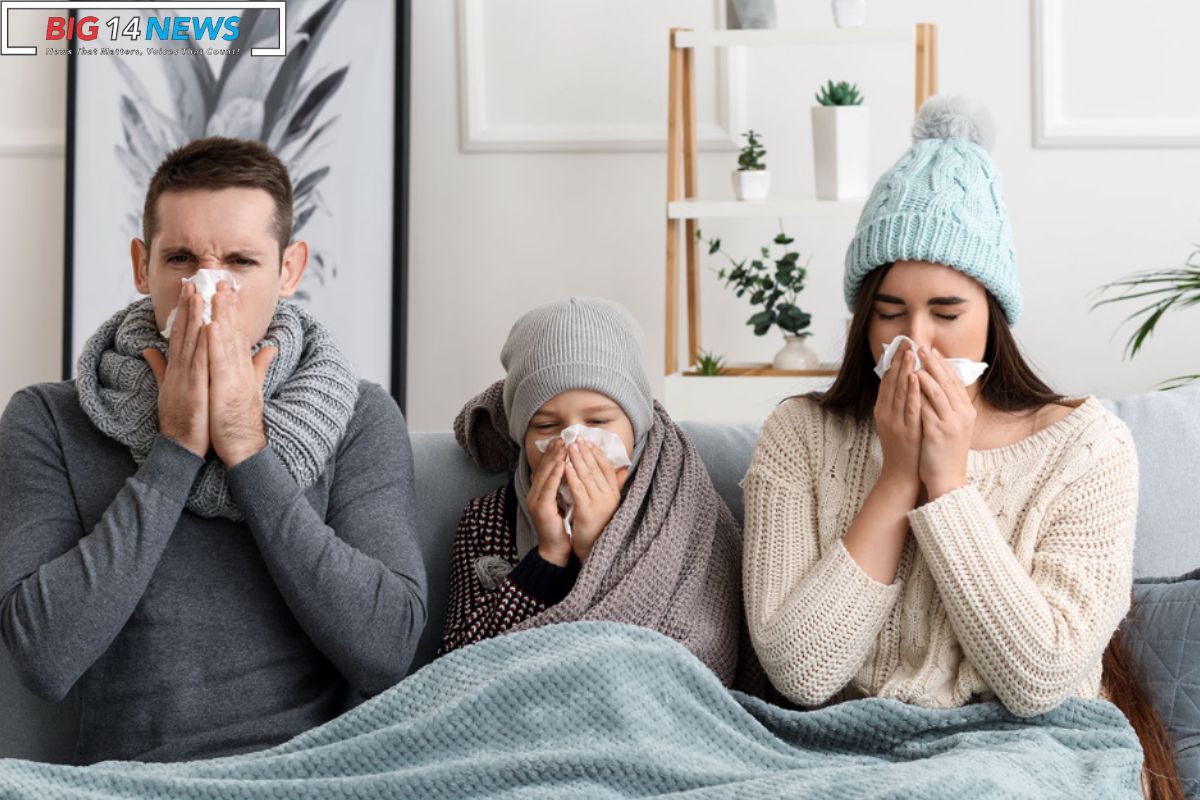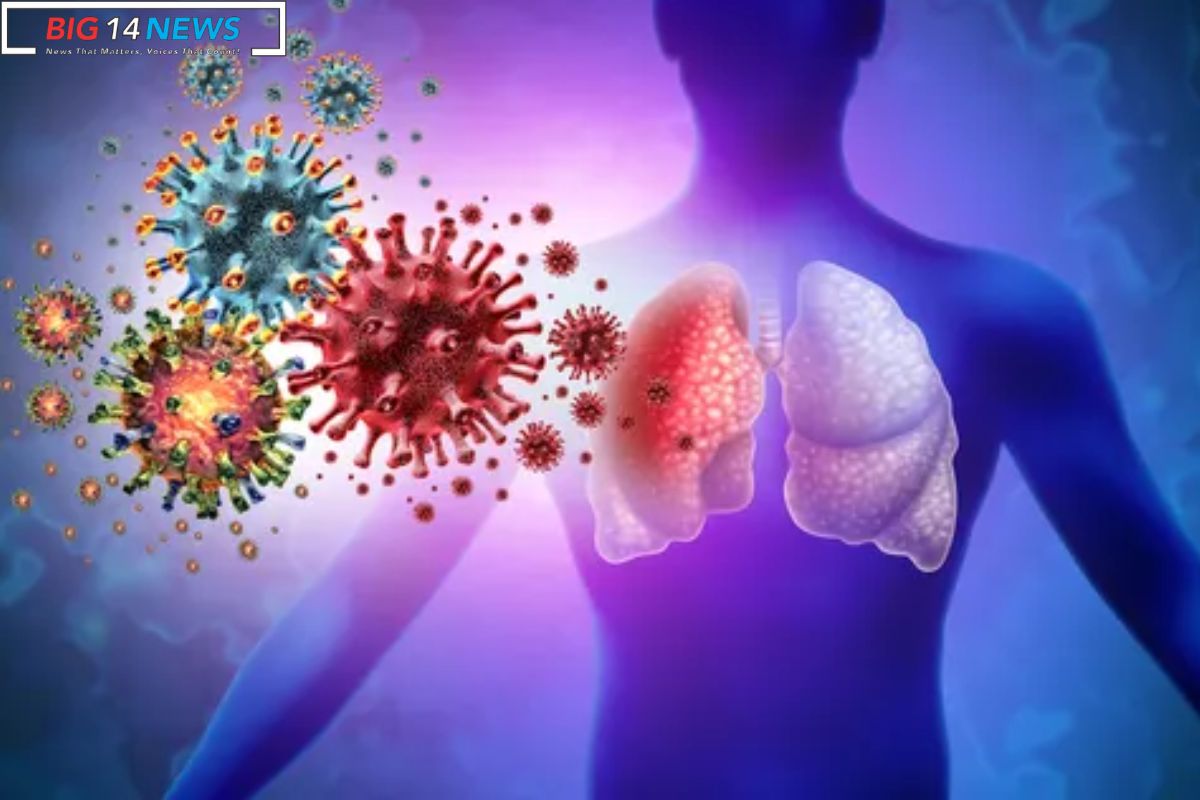RSV Flu And COVID: RSV, the flu, and COVID-19 attacked simultaneously last year, hurting health services. As winter 2023-2024 approaches, experts’ predictions take over.
Between 2022 and 2023, the CDC reported 26 million flu illnesses, 290,000 hospital stays, and 19,000 deaths. The upsurge in RSV and COVID cases was noted.
The Southern Hemisphere flu season runs from April to September, giving doctors a glimpse into future treatment. The CDC said flu viruses vary by location and by group protection.
Famous NYU Langone Medical Center doctor and Fox News expert Marc Siegel predicts another major flu pandemic. “Australia’s terrible flu spread is hurting young people most,” he compared. It may happen to us.”
Dr. Gregg Sylvester, CSL Seqirus’ Chief Health Officer, predicted Australia’s flu season would start around the same time as 2019’s and affect children most. “A shocking 70% of hospitalized people were younger than 16 since April,” he stated.
Though fall and winter are predicted to be harsh, physicians don’t expect another tripled emic. Most of the time, community defense has improved, and vaccines are easy.
Jersey Shore University Medical Center infectious diseases chief Dr. Edward Liu remarked, “People’s immune systems are getting stronger.” This is especially true after RSV encounters. New RSV vaccines for infants, elderly people, and pregnant women could stop the virus. Still, Liu thinks early uptake may be delayed “unless more cases lead to a faster vaccination response.”
Liu expects more COVID cases in the fall if the illness persists. This could cause a “duodemic.”
Experts say the following categories are more likely to experience hazardous flu, RSV, and COVID symptoms:
Infants with flu and RSV People over 50 Women with long-term lung or cardiac issues or pregnancy. People with inadequate defenses.
Doctor Sylvester believes those over 65 have a poorer immune system, making disease prevention difficult. Children under five are at risk since their immune systems are developing. In schools and daycares, viruses spread swiftly.
All doctors believe that vaccination is the best method to avoid these diseases. The CDC recommends the Pfizer-BioNTech or Moderna COVID-19 injection for everyone over six. Adults and weak-defense patients need supplements.


READ MORE: Preventing Aging in Human Cells: Breakthrough Discovery Protein ATSF-1 Holds Key
When released in the fall, Liu believes the latest COVID vaccination will protect against new types. Everyone over six months old should have a flu shot annually, preferably in September or October. Dr. Sylvester advises patients to discuss flu shots with their doctors before flu season. He also claims that shots are always feasible.
People over 65 should obtain a strong or boosted flu vaccination for enhanced protection. Physician Sylvester stated, “The flu is very dangerous for older people and causes more hospitalizations and deaths in older people than in younger, healthier people.”
The CDC recommends fall 2023 RSV-caused lower respiratory tract disease immunization for persons over 60. Older children and babies under eight months can do it. In future months, pharmacies should sell it since the FDA says it is safe for pregnant women.
Immunizations are not the best method to stay healthy. Masking, cleaning hands, avoiding people, and attempting are crucial. Dr. Liu advises against visiting sick family members on vacations.
We hope this reduces hospital visits next flu season. Liu said RSV could strain childcare services and require local hospitals to assist. “Hospitals are reluctant to give resources because children’s needs change,” he remarked.
Our Reader’s Queries
Is it possible to have COVID RSV and the flu at the same time?
Many individuals may not realize they have multiple infections if they avoid hospitalization, as the symptoms can be quite similar. A runny nose, cough, fever, and body aches are common with all three viruses.
How long does RSV last for?
RSV symptoms usually persist for two to eight days but may linger for a longer duration, particularly if they result in more severe complications like exacerbation of your asthma or COPD symptoms.
Are RSV and COVID linked?
In conclusion, COVID-19 significantly raised the risk of RSV infections in children ages 0-5 in 2022. The same pattern was observed in a study of children in the same age group in 2021.
What are the symptoms of RSV in adults?
Common signs encompass a cough, scratchy throat, stuffy nose, runny nose, headache, low-grade fevers, and exhaustion. Harsher symptoms may encompass flu-like symptoms with heightened cough and wheezing, to pneumonia, the incapability to breathe properly independently, and even death.

